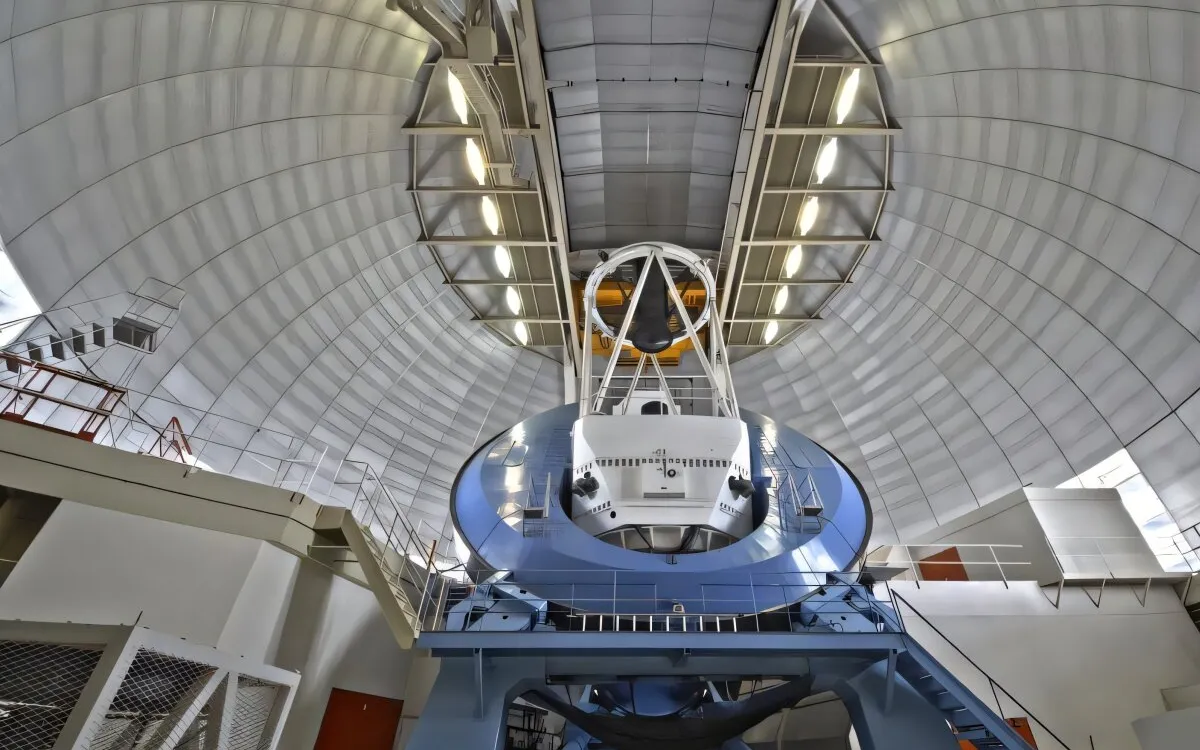
A groundbreaking study published today in the Monthly Notices of the Royal Astronomical Society challenges the long-held belief that the universe's expansion is accelerating. This research suggests that instead of moving away from us at an increasingly rapid pace due to a mysterious force known as dark energy, the universe may actually be entering a phase of decelerated expansion. These remarkable findings could revolutionize our understanding of cosmology and the nature of dark energy.
Lead researcher Professor Young-Wook Lee from Yonsei University in South Korea stated, "Our study shows that the universe has already entered a phase of decelerated expansion at the present epoch." This shift in understanding could reshape the scientific community's approach to resolving the ongoing Hubble tension and enhance our comprehension of the universe's past and future.
For nearly three decades, astronomers have operated under the assumption that the universe is expanding at an ever-accelerating rate, largely attributed to dark energy, which acts as a form of anti-gravity. This conclusion was largely based on distance measurements of distant galaxies using type Ia supernovae—explosions of stars that have been deemed "standard candles" for measuring cosmic distances. The significance of these findings even earned a Nobel Prize in Physics in 2011.
However, the research team at Yonsei University has introduced new evidence suggesting that type Ia supernovae are significantly influenced by the age of their progenitor stars. The study found that even after accounting for luminosity standardization, supernovae from younger stellar populations appeared systematically fainter compared to those from older populations. With a much larger sample size of 300 galaxies, the new study confirmed this effect with an astonishing 99.999% confidence.
This revelation indicates that the dimming of distant supernovae is not solely a cosmological effect but also significantly influenced by stellar astrophysics. When correcting for this systematic bias, the supernova data no longer aligned with the standard ΛCDM cosmological model, which includes a cosmological constant. Instead, the data better matched a new model favored by the Dark Energy Spectroscopic Instrument (DESI) project, which integrates findings from baryonic acoustic oscillations (BAO) and cosmic microwave background (CMB) data.
The corrected supernova data, when combined with BAO and CMB results, overwhelmingly ruled out the standard ΛCDM model. In a surprising turn of events, this analysis suggests that the universe is not currently accelerating but has already shifted into a state of decelerated expansion. Professor Lee emphasized, "While the universe will decelerate in the future, our analysis shows that it has entered a decelerating phase today." This assertion aligns with independent predictions derived from BAO-only or BAO+CMB analyses, which have largely gone unnoticed.
To further validate their findings, the Yonsei team is conducting an evolution-free test using supernovae exclusively from young, coeval host galaxies across a wide redshift range. Preliminary results are already supporting their primary conclusion. In the coming years, the Vera C. Rubin Observatory, equipped with the world's most powerful digital camera and located in the Chilean Andes, aims to discover over 20,000 new supernova host galaxies. This will provide precise age measurements for a more robust test of supernova cosmology.
Since the Big Bang initiated the universe's expansion approximately 13.8 billion years ago, gravity has played a crucial role in slowing it down. However, in 1998, astronomers discovered that nine billion years after the universe's inception, its expansion began to accelerate, a phenomenon attributed to dark energy. Despite constituting about 70% of the universe, dark energy remains one of science's greatest enigmas.
In summary, this study presents a paradigm shift in our understanding of the universe's expansion and dark energy. As researchers continue to explore these groundbreaking findings, the implications for cosmology, the resolution of the Hubble tension, and our grasp of the universe's fate are profound. The ongoing research at institutions like Yonsei University and the Vera C. Rubin Observatory stands to illuminate this cosmic mystery further.